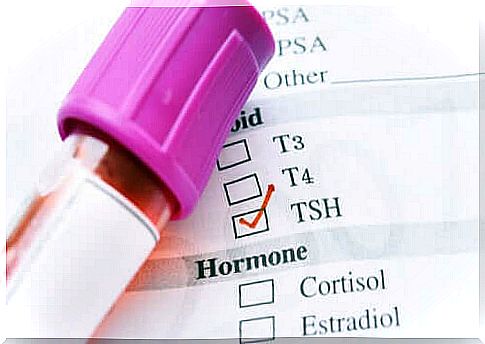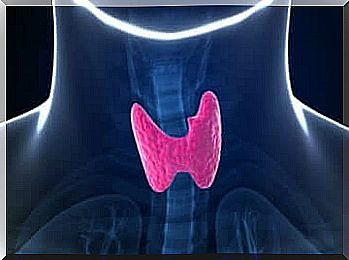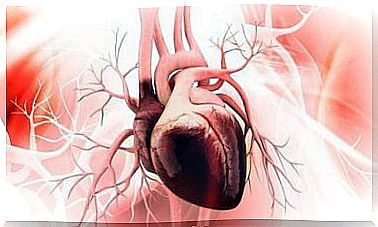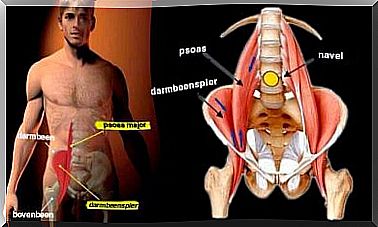What Is Thyroid Stimulating Hormone (TSH)?

Thyroid-stimulating hormone (THS) is a molecule involved in possible thyroid dysfunction. That is why doctors ask for the test that determines TSH levels in the blood when they notice certain symptoms related to this organ.
If the amount of TSH in the blood is not within the range, this is an indication of an abnormality that needs further study. This research is therefore often the first of several that will follow.
What is Thyroid Stimulating Hormone?
TSH stands for thyroid-stimulating hormone, or, technically, thyrotropin. It is released by the pituitary gland after the stimulus it receives from the hypothalamus. This process is via another hormone known as thyrotropin-releasing hormone (TRH).
Once TSH is present in the blood, it comes into contact with the cells of the thyroid gland. As a result of this contact, the body starts producing two other hormones:
- T3 or triiodothyronine. This is much more active than T4 and it is the hormone that has an effect on the tissues. That is, this hormone regulates the metabolism of the tissues.
- T4 or thyroxine. This hormone has minimal activity on the tissues. It’s more like a reservoir of T3. When T4 reaches the tissues, it can then be converted to T3, which performs the final act.
T3 and T4 go to the tissues to regulate the metabolism of proteins, carbohydrates and fats (Spanish link). These hormones are very important in babies because, among other things, they promote the normal development of a newborn’s brain tissue.
The amount of thyroid-stimulating hormone in the blood

According to a study published in 2017, involving approximately 4,550 people between the ages of 18 and 93, the prevalence of hypothyroidism was 9.1%. The prevalence of hyperthyroidism in this group was 0.8%.
Together, these two conditions affect almost 10% of the population. It would be possible for all of these patients to have an abnormal TSH result. The amount of this hormone is regulated in 3 different ways:
- the amount of TRH released by the hypothalamus.
- the pituitary gland responsible for storing and releasing TSH when needed.
- the negative feedback of the thyroid hormones.
What is negative feedback?
If a lot of thyroid hormones are produced, their amount in the blood is increased. The hypothalamus and pituitary gland both detect this rise and then decrease their production of TRH and TSH. We call this process negative feedback.
This means that the hormones self-regulate to have stable levels of these hormones in the blood. Without this mechanism, we would be constantly in a state of hyperthyroidism or hypothyroidism.
TSH levels in the blood
Normal levels of TSH in the blood are between 0.4 and 4 mIU/L. If these values are exceeded or the amount of the thyroid-stimulating hormone is actually lower, this means that the functioning of the thyroid gland is impaired.
In particular, a low TSH that there is so much T3 and T4 in the blood that these hormones give negative feedback to the pituitary gland. As a result, further production is slowed down or prevented. Usually in that scenario we are talking about hyperthyroidism.
Low TSH can also develop as a result of secondary hypothyroidism. This problem occurs when there is a dysfunction of the pituitary gland. Possible causes of this include:
- some of it has been destroyed.
- functioning is impaired – as can be the case with a brain tumor.
Finally, tertiary hypothyroidism may be the culprit. This means that the hypothalamus is not working properly and stops producing TRH. As a result, it does not send signals to the pituitary gland to produce TSH.
In the first case, when there is an overproduction of the peripheral thyroid hormones, there will be high T3 and T4 levels in the blood. That indicates that the metabolism is working too hard.
In that case, the body will burn all fats and sugars in the body to release energy. This means that there will be unwanted weight loss.
Treatment of Thyroid Stimulating Hormone Imbalances

Hyperthyroidism
Some of the symptoms of hyperthyroidism include nervousness, palpitations, hyperactivity, and excessive sweating. There is also a hypersensitivity to heat , increased appetite and weight loss.
If you think you may have hyperthyroidism, see your doctor. They can order blood tests to check your TSH, T3 and T4 levels. The diagnosis of hyperthyroidism will be made when thyroid stimulating hormone levels are low and thyroid hormones are high.
The causes can vary from a thyroid tumor to an autoimmune disease, in which the antibodies produced overload the thyroid cells. There are drugs to reduce any symptoms and control the consequences.
Hypothyroidism
Symptoms contrary to the above are, on the contrary, indicative of hypothyroidism. Think of complaints such as fatigue, weight gain, intolerance to cold and hypothermia,
It could be a brain tumor that is destroying or compressing the pituitary gland. This can hinder the release of TSH. It can also be due to the low production of T3 and T4 in the gland itself.
Too low a level of TSH in the context of hypothyroidism indicates a serious problem. It may be related to the destruction of the pituitary gland. If the TSH is normal or even high, the thyroid may be the culprit.









